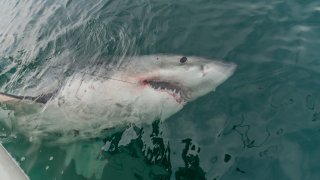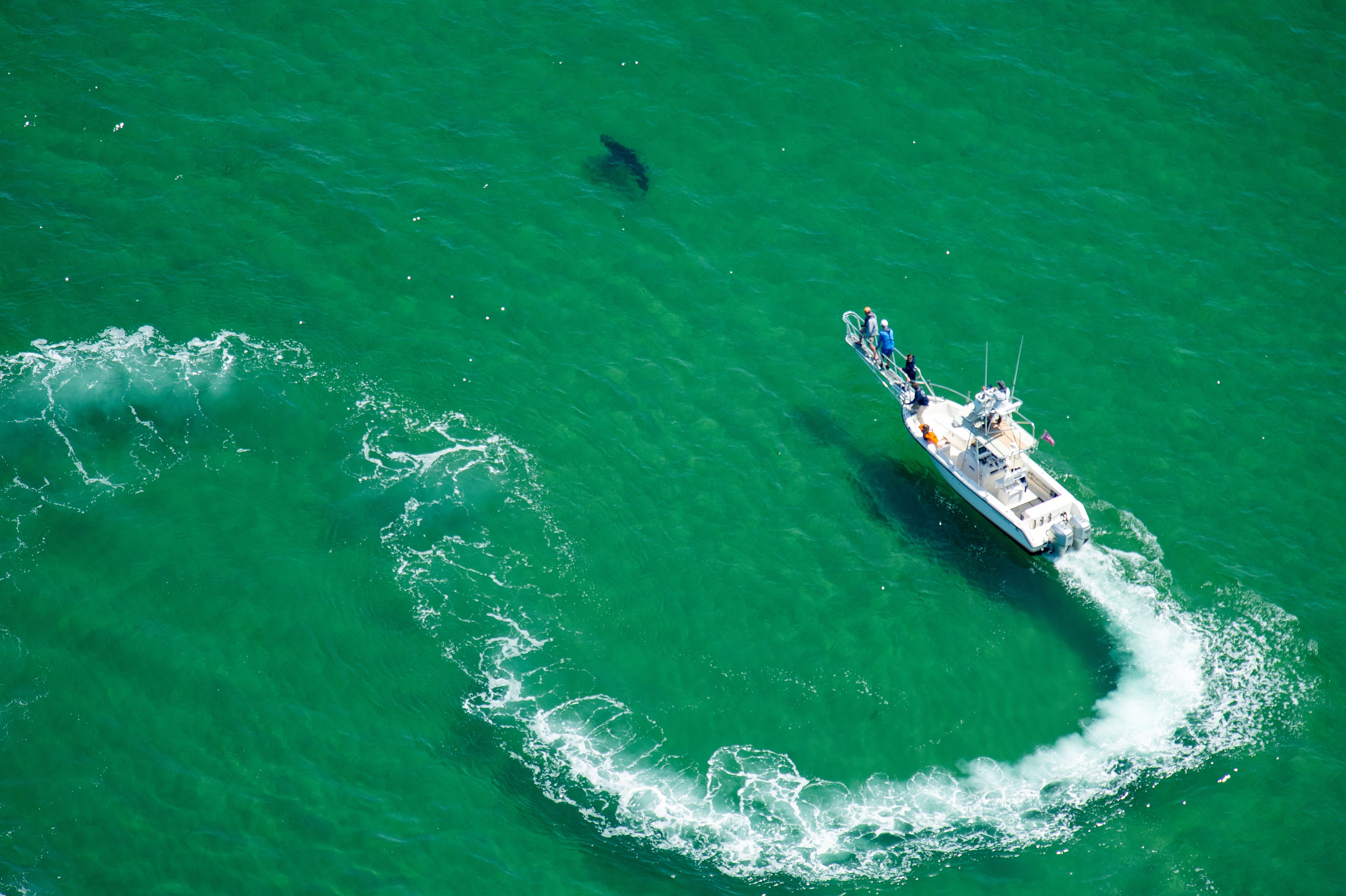
The first tagged white shark has been detected off Cape Cod this season, and she's a bit of a legend.
LeeBeth, a 14-foot shark, made history this February off the coast of Mexico, just south of the Texas border, the furthest west that one of the animals, often referred to as great whites, with a tracking tag has ever been detected.
WATCH ANYTIME FOR FREE
Stream NBC10 Boston news for free, 24/7, wherever you are. |
By Tuesday, LeeBeth was back off Massachusetts, according to the Atlantic White Shark Conservancy. She's the first tagged shark to show up on the nonprofit's popular shark-tracking app, Sharktivity, this summer.
LeeBeth was tagged by AWSC researcher Megan Winton off South Carolina on Dec. 8, and the organization said Wednesday that she's now traveled more than 6,000 miles in all — that's nearly 1,000 miles a month.
Get updates on what's happening in Boston to your inbox. Sign up for our News Headlines newsletter.
It's not yet clear if LeeBeth will stick around in Cape Cod, where signs of sharks have been ticking up in recent weeks, or if she'll continue swimming north — a white shark was spotted off the Canadian coast, east of Halifax, Nova Scotia, on May 29, according to Sharktivity.
White sharks, made famous by the 1970s hit movie “Jaws,” roam the ocean searching for their favorite food, marine mammals, and were once hunted without discrimination. Some scientists believe growing populations of seals in parts of the Atlantic Ocean are helping the sharks, which were designated a protected species in 1997.
Winton said this March that LeeBeth's presence so far west indicated that the western edge of the Gulf of Mexico could also be important to other white sharks, and that international cooperation is important to protect the sharks, whose worldwide populations are recovering from decades of overfishing.
“We don't know how many white sharks travel that far west, but it's a good indication they do,” Winton said. “There are only a handful of sharks that have been tracked west of the Mississippi.”
The Associated Press contributed to this report.



